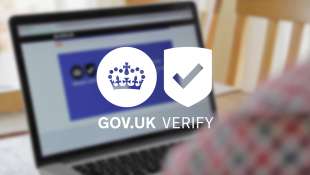GOV.UK Verify works with the Open Identity Exchange (OIX) to explore potential applications of digital identities around Europe in the private sector. In this guest post, Ewan Willars, Policy Director for the British Bankers’ Association (BBA), shares an insight into the banking sector’s involvement in OIX’s projects and why he’s interested in the development of GOV.UK Verify.
As a representative of BBA, I participated in a discovery project, run through OIX, that tested the hypothesis: ‘Individuals coming to live in the UK will be inclined and able to open a UK bank account online, prior to arriving into the country, using their national digital identity.’
Why get involved?
There were a number of reasons for running this project, including:
- potential opportunities created by the European wide initiative on identity assurance - the eIDAS regulation, which has been blogged about before
- developments in the UK around digital identity, such as GOV.UK Verify
- the digital revolution within the banking sector itself
Digitisation is changing industries across the world, introducing new opportunities for innovation and competition, and transforming the way we as individuals and companies operate. Banking is no different and BBA wanted to get involved in the OIX project because there are such big changes underway.
It's somewhat of a quiet revolution (banking has been on a path towards digitalisation for many years) but you can’t ignore the pace of change. The advent of smartphones and tablet computers has dramatically accelerated the speed of innovation and digital banking will truly come of age over the next few years. GOV.UK Verify reflects theses changes in the market, and in my view, will influence its ongoing development.
The impact of digital transformation on banking
Digital banking has two distinct benefits.
On the one hand, it makes processes quicker and more agile for the customer. For example, customers are now able to undertake transactions of varying complexity via a range of channels and devices, while on the move, 24/7. Their payments are faster, and more easily tracked.
On the other hand, digital increasingly offers a safer and more secure banking environment. Transactions in the future will carry richer data and, just as government needs to make sure people only have access to their own records and services, banks need to make sure the recipient is who the payee intended.
OIX offers the chance for open, productive discussion between government and industry and it’s good to share our knowledge in this area.
Protection against financial fraud will become more effective and sophisticated. While identity assurance is not the only protection against fraud for any given banking service - protective monitoring, transaction monitoring and other measures are needed - secure digital identity is certainly a concept central to digital banking systems.
BBA and OIX
The identification and verification of applications for new bank accounts is one of the key hurdles that can prevent a frictionless online account opening process. BBA is therefore a big supporter of the UK Government’s efforts to explore how digital ID might be used in a banking context. There would be significant benefits for banks and their customers if a service like GOV.UK Verify could replace individual identification processes banks have now, with a digital process that meets regulatory requirements.
It’s clearly a good thing for banks to have the confidence that a service like GOV.UK Verify gives about a customer’s identity. Real-time authentication of personal transactions could save customers and the industry millions, and reduce the opportunities for fraudsters and other criminals. It also makes banking simpler, faster and more secure for customers.
It’s also a good thing that this revolution is not happening separately in each country, but that countries have come together under the eIDAS Regulation to coordinate work on interoperability between national digital identity systems. Banks have clients all over the world. As more is done online, that has to work at an international level too. The eIDAS Regulation is a great first step towards being able to trust secure identities at an international level.
This future vision of identity in the banking sector may still be some way off. But it’s exciting, far-sighted projects such as those run by the Cabinet Office through OIX that are needed to bring the future closer.

